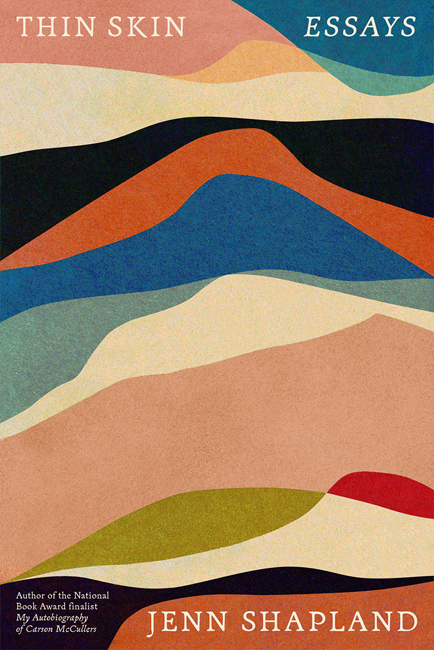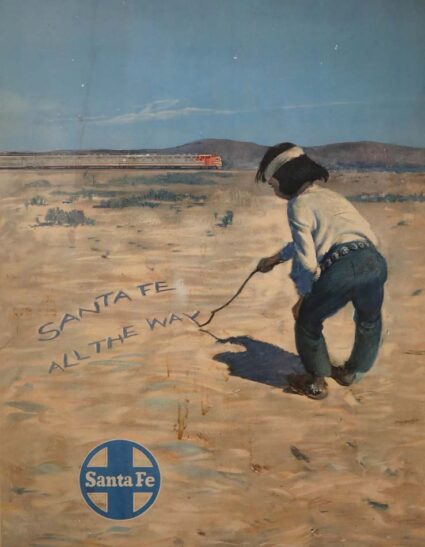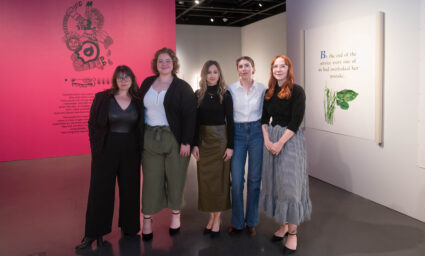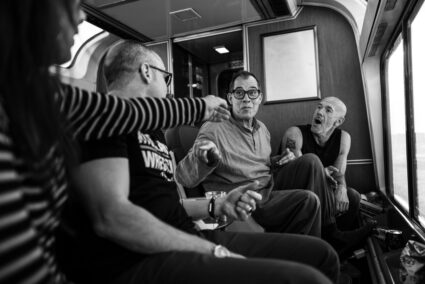Santa Fe–based writer Jenn Shapland, author of multi-award-winning My Autobiography of Carson McCullers, chats about the writing life and her new collection of essays, Thin Skin.

Like many of us, Santa Fe-based author Jenn Shapland took a somewhat circuitous route to becoming a writer: she worked several different jobs and attended graduate school at the University of Texas at Austin before working on her first book.
“When I was young I liked writing and reading, but I didn’t really allow myself to think of writing as something I would really do—as like a career,” Shapland, a one-time contributor to Southwest Contemporary, tells me over the phone on the first autumnal day of the year.
“It wasn’t until I was in grad school for something else that I actually started writing nonfiction, took my first workshop, went to my first residency,” she continues. “So I had to try a more ‘legitimate’ path before I was able to see that that didn’t really fit the kind of writing I wanted to do, and before I could allow myself to think that writing was maybe something I could do.”
Shapland’s first book, the genre-bending My Autobiography of Carson McCullers, was published in 2020 to critical acclaim—and to a world in lockdown. Although the book was widely publicized and won the Lambda Literary Award for Lesbian Memoir, the Publishing Triangle Judy Grahn Award for Lesbian Nonfiction, and the Phi Beta Kappa Christian Gauss Award, Shapland didn’t get to complete her book tour because of the pandemic, and so didn’t get to hear firsthand what many of her readers thought of the book.
Now, with her second book—a collection of essays titled Thin Skin—out in the world as of August 2023, she says that the experience is different.

“Something that’s happening with this book is that it’s boomeranging back to me. People I know are reading it and telling me what they think in real time. That didn’t happen with Carson!” Shapland isn’t sure she’s comfortable with this change in reception, even though most of her friends reading the book say they like it, of course.
While Carson McCullers is presented in short chapters, shot through with the feelings of discovery and furtive excitement of a young queer archivist digging through the stacks, Thin Skin is slower-paced and more ambling: the research is deeper and the web of connections is broader.
In this collection, the academic tools at Shapland’s disposal are pointed toward the history of nuclearism in New Mexico; towards the fear and fragility she was made to feel as a white girl growing up in the suburbs; towards the beauty of living a queer and child-free life; and towards the ways these disparate subjects interact and inform each other in surprising ways. All of this research and analysis is paired with a warmth and tenderness towards her subjects—Shapland writes as an act of love. Despite the often gloomy nature of many of the subjects she picks, it is this guiding force of hers that one comes away with after reading.
Now, on the tail end of the tour for Thin Skin, Shapland is taking a break for the first time since she started writing—and she’s trying her hardest not to know what’s next.
“It occurred to me in the spring to question, ‘What would happen if I didn’t leap right into the next project like I’m wont to do?’ I want to change my relationship to my creative process. It feels a lot like work right now, and I’d like to make it feel nourishing and playful and good.”



